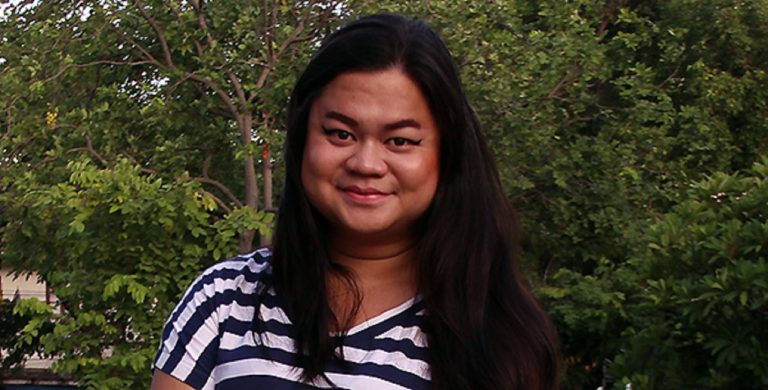
By Alexandra Demetrianova
One of the most renowned and liberal universities in Thailand, Thammasat, has stood behind its original decision to not accept its graduate Kath Khangpiboon as a lecturer at Faculty of Social Administration. The rejected appeal comes despite the fact that the Faculty has fully supported Kath, as its alumni and previously an external lecturer.
The 28-year-old transgender woman has been fighting her case at Thammasat for months now after the University Board Committee rejected her application because of social media posts they viewed as not “acceptable for a Thammasat lecturer”. Miss Khangpiboon hasn’t followed the “ethical principles of Thammasat lecturer”, it said. The body also rejected claims by Kath that the latest decision was based on her transgender identity.
But Kath Khangpiboon is not only a transgender woman, she is also one of the most prominent and well known LGBT activists in Thailand and Southeast Asia. As a co-founder of Thai Transgender Alliance and one of the first openly transgender academics at Thammasat University, Kath sees the committee’s gender discrimination. But she’s not giving up: “I will take further legal steps at the Administrative Court of Thailand. In the courts my case could take months, or even years, but I am determined to go all the way to Constitutional Court.”
The LGBT activist and academic graduated from both Bachelor and Master programs with specialization in gender at Faculty of Social Administration and continued teaching there externally.
Social media activity isn’t officially part of the criteria considered in applications for lecturer positions at Thammasat, and Kath claims this was the first time the university has used this argument.
“I believe it is about my gender, as I am the first openly transgender person to apply for a position of lecturer at Thammasat,” she said. “I have information that some conservative people from my faculty and university have collected the data from my private Instagram account as evidence against me.”
The inappropriate posts included a photograph on Instagram of lipstick in shape of a penis; a present from Japan which Kath wore for Halloween party.
“I am an LGBT activist – I talk about gender, sex and sexuality in public in order to educate people and raise awareness.”
Kath often attends national as well as regional LGBT and UN conferences to talk about transgender and LGBT issues in Thailand. She’s written numerous academic articles on the topic, both in Thai and English. As the co-founder of Thai Transgender Alliance she often appears in Thai and international media as a source, expert and transgender woman.
Thailand is often portrayed as one of the most liberal countries in the world when it comes to LGBT issues. However these claims are rather stereotypical, as activists regularly point out. So far, there is no effective law in Thailand recognizing discrimination based on sexuality and gender. Though the LGBT civil society is large and very active in Thailand, legal protection of sexual minorities remains a challenge. Recently, the military government has proposed the inclusion of gay and transgender rights in the new draft of the Thai constitution.
Although the document would not be passed democratically – by an unelected body appointed by the military junta of General Prayuth Chan-ocha, who has toppled democratically elected government of Yingluck Shinawatra over a year ago – it would be a major victory for the LGBT community.
Such constitutional inclusion could be a way for transgender people like Kath Khangpiboon to defend themselves legally against discrimination. However, much more needs to be done for the general acceptance of transgender people in Thailand.
“We desperately need a law protecting transgender people from physical, sexual violence and other forms of discrimination – like work and profession – similar to what I’m going through right now. But that’s just the start, the government needs to focus on social development, human security, legal, educational and health issues,” she said.
One of the many issues for transgender people in Thailand remains the stereotypical acceptance – they often end up working in the entertainment, fashion, beauty and sex industries. For trans people aiming at other professions, the road can be rocky just like for Kath.
“Society should accept us as equal citizens without conditions,” she said. “Transgender people should be allowed to study openly at schools and universities. We have to create a strong policy to help all LGBT people have equal opportunities, mainly in employment. Policy makers in the government should create policy based on gender sensitivity and provide social service directly to LGBT people.”
Recently Bangkok University became the first in Thailand to officially allow students wear school uniforms based on their gender preference. Guidelines for male, female, trans women and trans men uniforms were published to portray appropriate uniforms for all genders and sexual minorities.







